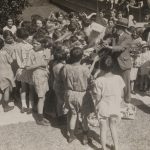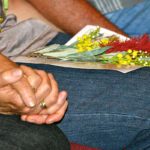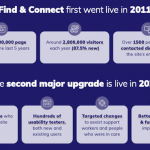The archival multiverse
- Feb 15, 2017
- In Features
In December 2016, I was part of a panel at the conference of the International Australian Studies Association (InASA) in Fremantle, hosted by the Centre for Human Rights Education at Curtin University. Chaired by Dr Joanne Evans, the panel was titled ‘Reimagining the archive for archival autonomy’.
Joanne set the scene by referencing the Universal Declaration on Archives which was adopted by the 36th Session of the General Conference of UNESCO on 10 November 2011. The Declaration is a powerful statement about the role that archives can play in supporting democracy and human rights, preserving collective memory, and ensuring administrative transparency. But, as Joanne asserted in her opening presentation at the conference, the Declaration places a responsibility on archivists to turn a critical eye on ourselves, and to acknowledge that archival systems reinforce power and privilege. Records and archives have been powerful tools for both promoting and extinguishing human rights. If archivists are to go beyond serving ‘information elites’, there is a need to develop archival systems which better protect and respect citizen and human rights.
The panel featured a number of presentations showcasing some current projects that are reimagining and refiguring archives in ways that potentially contribute to social and historical justice and reconciliation for marginalised communities in Australia.
Kate Gregory from the State Library of Western Australia gave a presentation (co-authored with her colleague Damien Webb) titled, ‘Out of the shadows: Creating Indigenous spaces within the archive‘ about the Storylines initiative. Storylines is a project to explore, identify and return Aboriginal heritage material from the collections of the State Library of WA. The Storylines project, and its collaboration with community members to identify people, places and stories from the materials held by the Library, is challenging and refiguring the traditional power relations of the archive, and introducing new ways of working with photographs and other material relating to Indigenous communities.
Storylines uses the Keeping Culture knowledge management system, software which enables the Library to be responsive to community – for example, images can be taken down from the web for periods of time if a community requests this for ‘sorry business’. Storylines provides access not only to State Library material, but also to material owned by the community. The Keeping Culture software provides a central platform for material held in the State Library’s collection – there are also community platforms of Storylines, for local materials – these materials are community owned and managed.
Storylines provides access to the remarkable Mavis Walley collection of over 300 photographs, taken by a mother of 11 with her Box Brownie camera at Goomalling between the 1950s and 1970s. The collection was ‘discovered’ when Mavis Walley’s daughter, Dallas Phillips, brought along a ‘tin full of treasures’ to a history workshop held in Goomalling, 145 km northeast of Perth. This led to State Library WA digitising the images and making them available through Storylines. The images in the Mavis Walley collection have a very different provenance to many of the photographs within the Library’s collection, taken for purposes of ethnographic or anthropological study. Kate Gregory’s presentation acknowledged the State Library’s ‘deeply colonial framework’, which is being challenged and addressed by projects like Storylines.
Narissa Timbery was another speaker on the panel, showcasing the Monash Country Lines Archive. Narissa spoke of how research can be a colonising and exclusionary process, and her interest in reflexive research practice and developing technological systems which assist, rather than destroy, Indigenous cultures. Narissa introduced the concept of the ‘archival multiverse’, the subject of a recent volume published by Monash University Press (Research in the Archival Multiverse). In 2011, Gilliland and McKemmish explained that the term archival multiverse captures ‘the pluralism of evidentiary texts (records in multiple forms and cultural contexts), memory-keeping practices and institutions, bureaucratic and personal motivations, community perspectives and needs, and cultural and legal constructs’.
Our panel at the InASA conference endorsed the notion of the archival multiverse, its diverse ways of knowing and its multiple communities, as an important new framework for understanding archives and for transformational changes in archival systems and practices, so that archives and archivists can help to build and support communities and further human rights and social justice.





